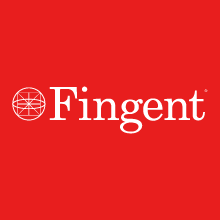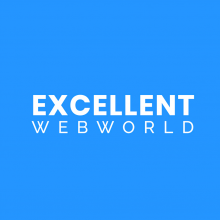
There are 208 Companies in Australia
that provide Angular Development Services!
Australia is considered one of the most promising countries with an ICT tradition. With a good research infrastructure, an experienced workforce, and a friendly environment, it has a constantly growing IT industry that attracts both investors and clients.
Discover Top IT Companies in Australia specialized in Angular and other related services. Find the best IT service providers for your projects.
Angular (formerly AngularJS) is a popular open-source web application framework maintained by Google and a community of developers. It's used for building dynamic, single-page web applications (SPAs) and web-based applications in general. Angular provides a structured and organized way to create complex web applications by extending HTML with additional features and enabling the development of interactive, responsive, and maintainable front-end web interfaces.
Handpicked companies • No obligation to hire • 100% risk-free
Featured Companies in Australia
This month, the following Angular Development companies managed to provide an outstanding service and support. It's worth taking a look.

Craigieburn, Australia Head office in: United States
SDLC Corp is a global IT solutions provider offering custom software, apps, blockchain, AI, Odoo, Salesforce, and game development services.

Codewave Global Verified Company
New South Wales, Australia Head office in: India
Unlock Rapid Innovation in Design & Tech: AI-Powered Efficiency (2x), Transparent Costs, Limitless Customization!
Explore Top Angular Development Companies in Australia
Use the advanced filter to find companies near you or refine the results Last updated in: December, 2025
Techgropse is a leading Mobile App and Web Development Company, dedicated to turning innovative ideas into remarkable digital solutions. 500+ Clients
Kuchoriya Techsoft—Mobile app, web, and custom software development company helping businesses with scalable digital transformation solutions.

Queensland, Australia Head office in: India
Our Main Focus Is Creating Metaverse & AI Projects Seamlessly Combining Artificial Intelligence And Virtual Reality. Also, We Have Expert IT Services.
Services:
Excellent Webworld: AI-Driven Custom Software Development Company | ISO 9001 Certified Global Leader in Intelligent Digital Solutions
Fire Bee Techno Services is an ISO-Certified Blockchain and AI Development Company In india and across the world with 13+ years of experience.

West Victoria Australia, Australia Head office in: United States
Transforming the Digital Landscape
Where traffic flows, business grows.™
Services:

Addus Technologies Verified Company
New South Wales, Australia Head office in: India
Web3 Development Company
Services:
Top Custom software and mobile app development company
Technology with beauty and power. Software brilliance for visionary companies.
Services:
Golden Owl Consulting is one of the most prominent agile software outsourcing firms
eBizneeds: A leading technology solutions provider empowering businesses with innovative web and mobile app development services.
Empowering Businesses with AI-Driven Digital Transformation!

Dotsquares Technology Verified Company
Glen Waverley, Australia Head office in: United Kingdom
Dotsquares is a global technology company with over 1000 professionals specialising in development, design, marketing, and management.
Filter Angular Development Companies in Australia by Cities
Find the right tech company near you or from a specific city. Some of the best companies might be located in smaller cities.
Find more Angular Development companies around the world
TechBehemoths is the world's most advanced and user-friendly platform to match IT Companies with real clients without hustle.
Australia ICT Industry: General Portrait
Australia is considered one of the most promising countries with an ICT tradition. With a good research infrastructure, an experienced workforce, and a friendly environment, it has a constantly growing IT industry that attracts both investors and clients.
According to the Commonwealth Scientific and Industrial Organisation, the IT industry in Australia will grow by 2030 by 27% due to a highly qualified labor force and friendly government policies that encourage companies to invest in Australia’s IT Sector.
The average annual salary in the IT industry is around $75K - $80K U. S. dollars. This also explains the price range/hour, which is approximately $37/hour.
Why Work With Australian Web Agencies
Australian-based agencies provide high-quality web & IT products with a wide range of services and fully assume responsibility for their work. The service quality is proportional to the price range, but if you look for agencies that will do everything from A to Z, the Australians will handle the process.
What to Be Aware of When Working With Australian Web Agencies
Based on multiple reviews and feedback from clients of Australian web agencies, it’s good to pay attention to the prices and services attached, especially after the project ends. Sometimes, it costs more to maintain the web project than to create it. But it’s not always the case.
Are Australian IT Companies Reliable?
There is no precise answer to how reliable each Australian-based web agency is. However, on average, Australians tend to execute all requirements, exactly specified in the agreement, with no challenges. Clients recommend Australian web agencies due to their high efficiency and skills, but also do not recommend them due to the price range.
How the Australian IT Sector Relates to Its Neighboring Countries
Australia’s only competitor in the region is Indonesia, which is also progressing in the IT industry scale. However, it’s impossible to compare these two countries in price range, as Australia has a significantly higher cost per hour.
Overall, Australia is considered to be a top destination for business and also for working in the IT sector, mainly because of the number of professionals and skilled developers, designers, and an increasing number of tech professionals who deliver good services.
What is Angular and what are its benefits for your projects?
Angular (formerly AngularJS) is a popular open-source web application framework maintained by Google and a community of developers. It's used for building dynamic, single-page web applications (SPAs) and web-based applications in general. Angular provides a structured and organized way to create complex web applications by extending HTML with additional features and enabling the development of interactive, responsive, and maintainable front-end web interfaces. Here are some key aspects and concepts of Angular:
-
Component-Based Architecture
-
Templates
-
Directives
-
Dependency Injection
-
Services
-
Routing
-
Observable and RxJS
-
Modules
-
Testing
-
Cross-Platform
Angular's structured approach, strong tooling, and vibrant ecosystem of libraries and extensions make it a powerful framework for building modern web applications. It is particularly well-suited for large and complex projects where maintainability and scalability are crucial.
Companies may choose Angular over other front-end frameworks for their projects for a variety of reasons, depending on their specific needs and priorities.
-
Google Backing: Angular is developed and maintained by Google. This association often gives companies confidence in its long-term support, stability, and continuous improvement. Google's involvement is seen as a sign of reliability and commitment to the framework.
-
Mature and Established: Angular has been around for a while and has a strong track record of being used successfully in large-scale enterprise projects. It has a well-defined architecture and best practices, which can be beneficial for maintaining and scaling applications over time.
-
TypeScript Support: Angular is built with TypeScript, a statically-typed superset of JavaScript. TypeScript provides better tooling, code maintainability, and catches errors at compile time, which can reduce bugs and enhance code quality, making it attractive to companies that prioritize robust code.
-
Full-Featured Framework: Angular provides a comprehensive set of tools, libraries, and features out of the box, including routing, form handling, HTTP client, and more. This can save development time and effort compared to integrating multiple third-party libraries in other frameworks.
-
Two-Way Data Binding: Angular offers powerful two-way data binding, which allows for automatic synchronization between the data model and the view. This feature can make it easier to develop interactive and responsive user interfaces.
-
Large and Active Community: Angular has a large and active community of developers and a wealth of resources, including documentation, tutorials, and third-party libraries. This can be beneficial for finding solutions to common problems and getting support when needed.
-
Enterprise-Ready: Angular provides features like dependency injection, modularity through modules, and a strong emphasis on testability. These characteristics are well-suited for building robust and maintainable enterprise-level applications.
-
Strict Coding Standards: Angular enforces a set of coding standards and best practices, which can lead to more consistent and readable code. This can be important for companies with multiple developers working on the same codebase.
-
Cross-Platform Development: Angular can be used for building both web and mobile applications. Companies looking to develop applications for multiple platforms may choose Angular for its ability to share code between web and mobile apps using technologies like NativeScript or Ionic.
-
Integration with Backend Technologies: Angular can easily integrate with various backend technologies and APIs. This makes it suitable for projects where the front end needs to communicate with different types of server-side applications.
-
Security Features: Angular provides built-in security mechanisms to help prevent common web vulnerabilities like Cross-Site Scripting (XSS) and Cross-Site Request Forgery (CSRF). This can be crucial for projects with high security requirements.
-
Ecosystem and Tooling: Angular has a rich ecosystem of tools, extensions, and IDE support, including Angular CLI for project setup and management. This can streamline development workflows and improve productivity.
Ultimately, the choice of Angular or any other framework depends on the specific project requirements, the development team's expertise, and the company's long-term goals. Companies evaluate various factors to determine which framework aligns best with their needs, resources, and priorities.

















